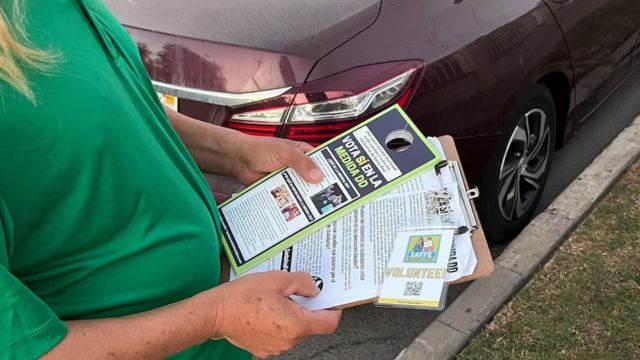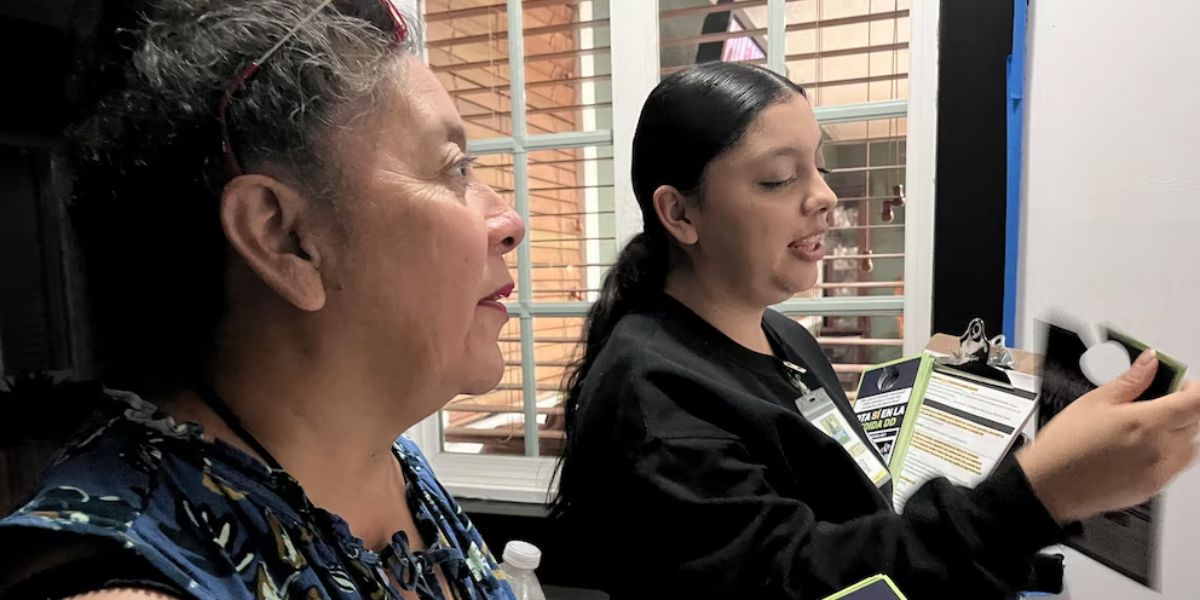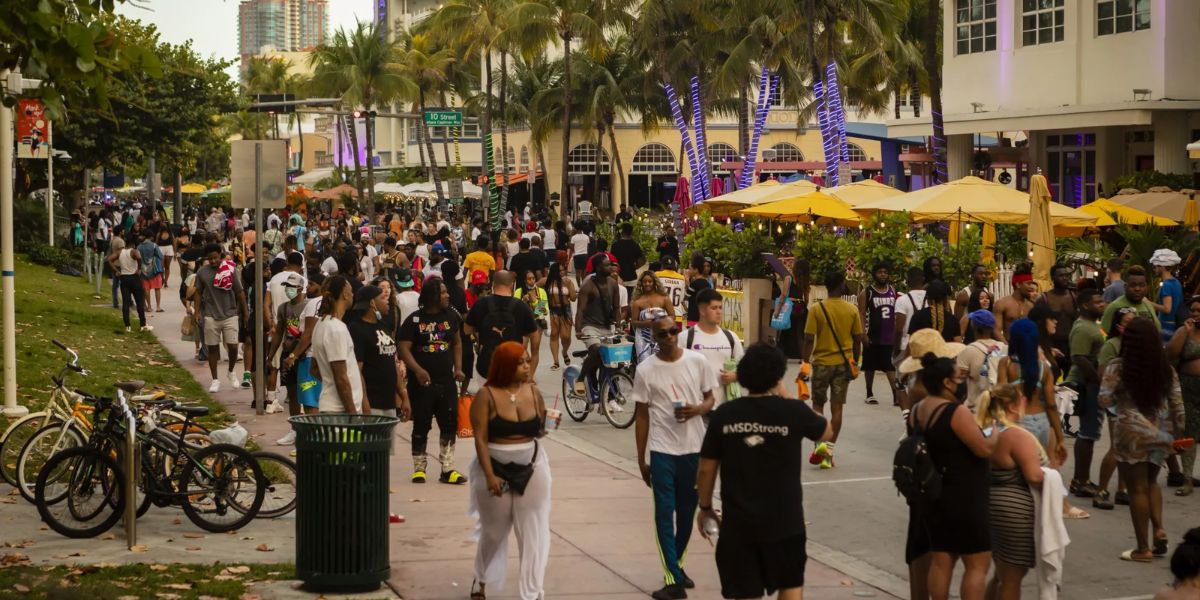MJP –
In a significant decision, Santa Ana voters have rejected Measure DD, a proposal that would have granted local voting rights to non-U.S. citizens. With 60% of voters opposed, the measure failed to pass in this Southern California city, home to around 310,000 residents.
The rejection marks a noteworthy shift in sentiment in Santa Ana, a primarily Latino community in Orange County, located southeast of Los Angeles. Experts suggest the outcome may point to changing perspectives on immigration issues within the Latino electorate.
The vote echoes broader national shifts, with some analysts noting Latino voters’ evolving positions on key issues impacting their communities.
In a decisive vote that has sparked significant debate, voters in a California city have overwhelmingly rejected a measure that would have allowed non-citizens to participate in local elections. The proposal, which was brought to the ballot with the aim of expanding civic engagement, faced strong opposition from local residents and political groups who argued that voting rights should remain exclusively for U.S. citizens.

The measure, which would have permitted legal residents, including immigrants with permanent status, to vote in local elections such as city council races and school board votes, was rejected by a wide margin. While proponents argued that non-citizens contribute significantly to the community, particularly in immigrant-rich areas, the rejection highlights the ongoing debates around immigration policy and the scope of political participation.
The Measure and Its Implications
The proposal, formally known as Measure X, was introduced in response to the growing number of immigrants in the city who, while contributing to the local economy and community life, were not eligible to vote due to their non-citizen status. Supporters argued that legal residents, who pay taxes, send their children to school, and are integral to the social fabric of the city, should have a voice in shaping policies that directly affect them.
Florida Gulf Coast Struggles With Hurricane’s Impact on Turtle Nesting Sites
“The residents of our city—whether citizens or not—deserve a say in how their neighborhoods are run,” said Maria Alvarez, a local activist who campaigned in favor of Measure X. “We want to make sure that everyone who calls this place home is included in the decisions that impact their lives.”
However, critics of the measure raised concerns about the potential consequences of extending voting rights to non-citizens. Opponents argued that voting is a fundamental right tied to citizenship and that granting non-citizens the ability to vote would blur the lines between citizenship and residency. Many also cited concerns over potential national security implications and the principle that voting should be reserved for those who have formally committed to the country through naturalization.
“Voting is a privilege, not a right, and it should be reserved for citizens who have taken the necessary steps to fully integrate into American society,” said Greg Johnson, a local political commentator. “This measure could have set a dangerous precedent for the future of our democracy.”
Strong Opposition to the Measure
The proposal faced widespread opposition, particularly from conservative groups and some law enforcement organizations, who argued that it could lead to changes in local policies that might not align with the values of the broader population. Anti-immigrant groups, including the California Coalition for Secure Communities, campaigned aggressively against Measure X, arguing that the integrity of local elections would be compromised if non-citizens were allowed to vote.
Florida’s Premier Medical Center Earns ‘Best Hospital’ Title for 2025
Additionally, some city leaders voiced concerns about the legal ramifications of the measure, citing the fact that federal law prohibits non-citizens from voting in federal elections and that local policies should not conflict with these national regulations. In the weeks leading up to the vote, the measure was hotly debated at town halls and public forums, drawing large crowds of residents both for and against the proposal.
The Result: An Overwhelming Rejection
In the end, the measure was rejected by 72% of voters, a clear indication that the city’s electorate did not support the idea of extending voting rights to non-citizens. This result has been hailed by some as a victory for preserving traditional voting laws, while others argue that it represents a missed opportunity to foster more inclusive political participation.
While the measure did not pass, proponents of expanded voting rights for non-citizens remain undeterred. They point to other cities and even states, such as San Francisco and New York City, where non-citizens have been granted the right to vote in certain local elections, and hope to continue advocating for similar changes in future elections.
Broader National Debate
The issue of non-citizens voting in local elections is part of a broader, ongoing national debate about immigration, citizenship, and the rights of immigrants. While most states and localities in the U.S. limit voting to citizens, some areas have experimented with allowing legal residents to vote in local races. These efforts are often met with resistance, as many argue that the right to vote should be reserved for citizens who have completed the naturalization process.
In the wake of this vote, experts predict that the issue will continue to emerge in cities across the U.S. as immigration policy and demographic shifts become more central to political discourse. Whether this measure’s defeat signals the end of such efforts in the region remains to be seen, but it is clear that the conversation around who should be able to vote, and under what circumstances, is far from over.
Conclusion
The rejection of Measure X in this California city has added fuel to the national debate over non-citizen voting rights. While the measure was overwhelmingly defeated, it highlights the complex and often contentious relationship between immigration, civic participation, and the concept of citizenship in America. As the nation continues to evolve, so too will the discussions about who gets a say in shaping the future of our communities.
For now, this California city has chosen to preserve the traditional definition of voting rights, but the debate will likely continue to play out across the country in the years to come.




